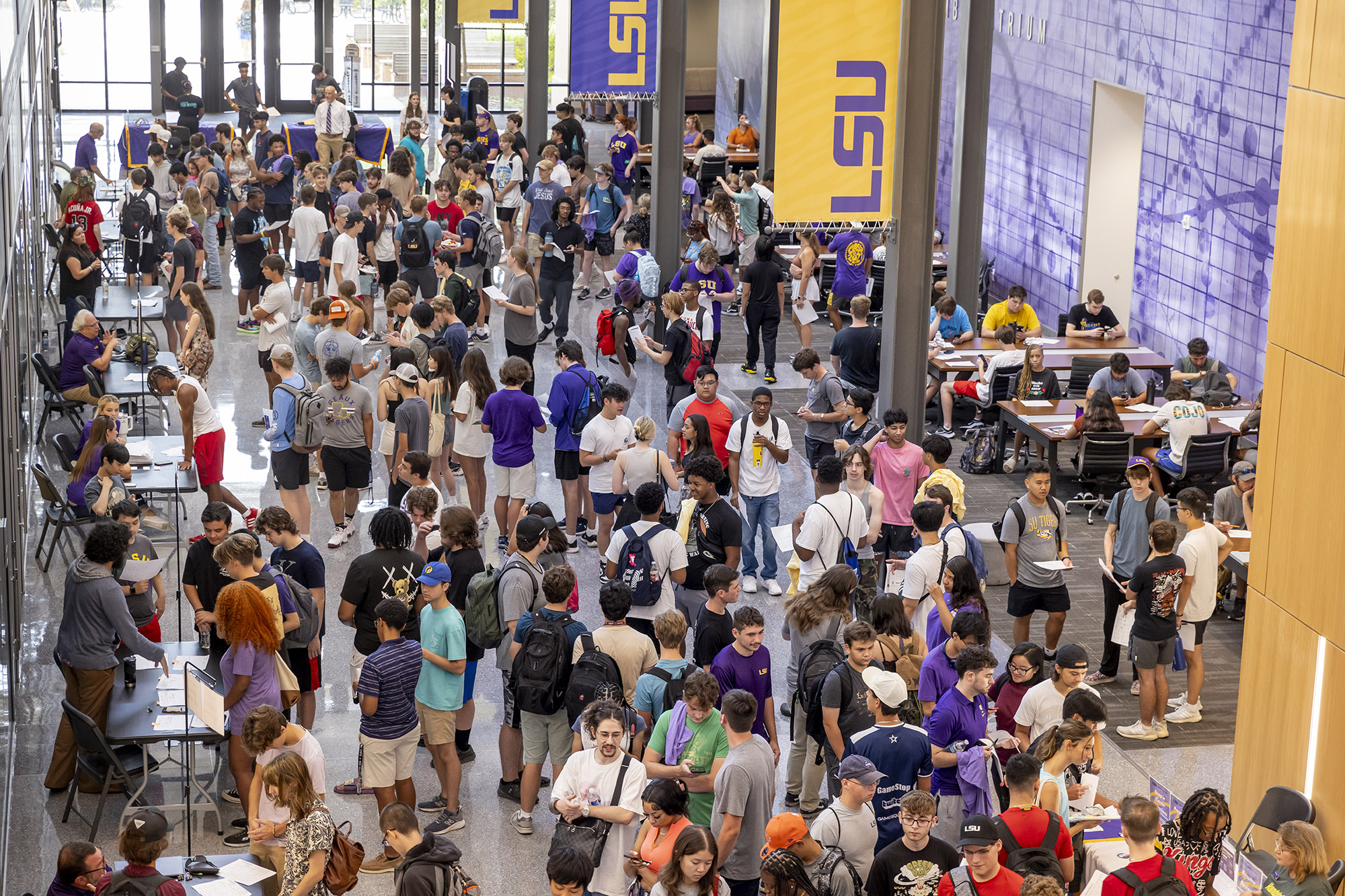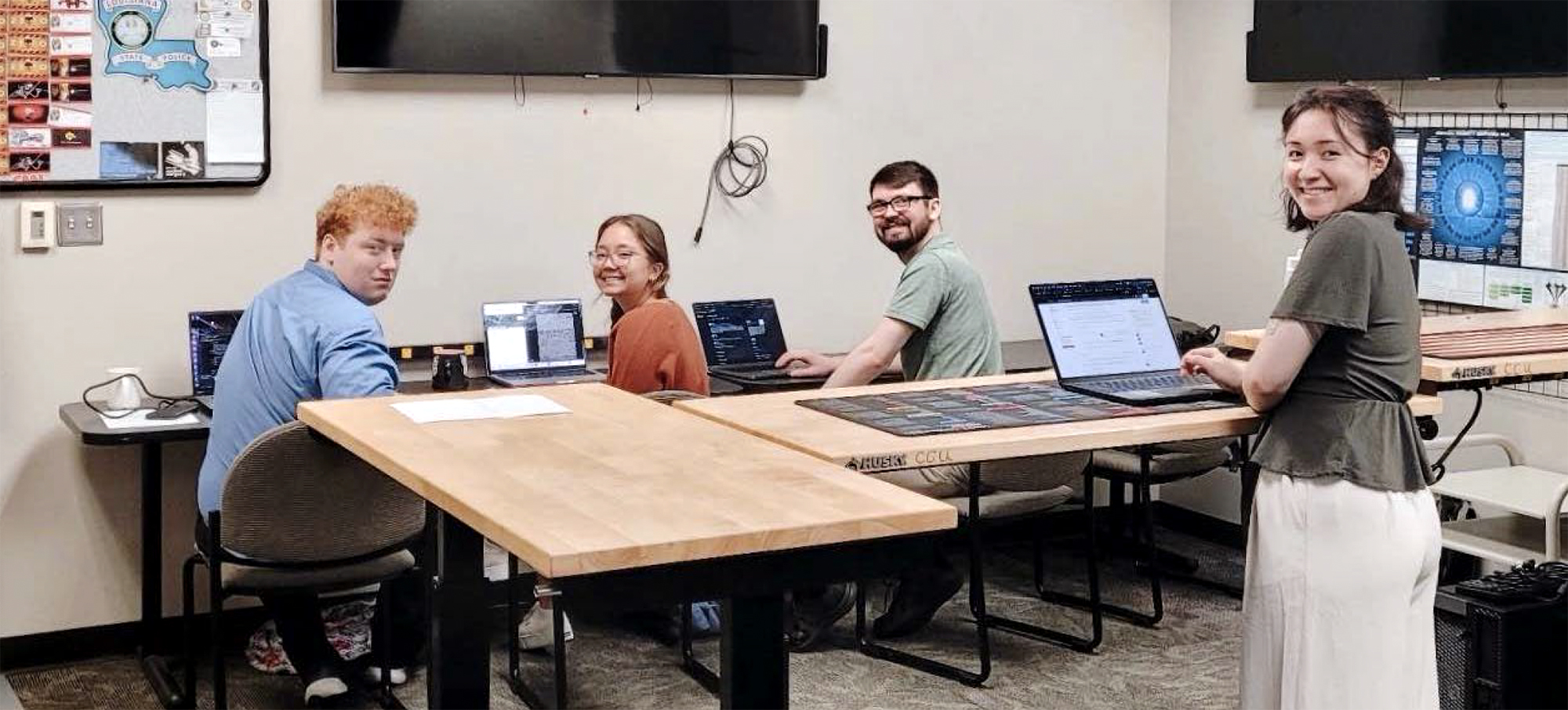LSU Cyber Talent Program Awarded $2.4 Million by NSF
August 21, 2025
- American students receive generous scholarships to launch national security careers.
- LSU is one of only six U.S. schools to receive CyberCorps funding this year.

LSU has more than doubled its enrollment in computer science over the past decade with about 250 students now enrolled in its cybersecurity concentration.
LSU’s rapidly growing cybersecurity program, which earned the nation’s top designation as a Center of Academic Excellence in Cyber Operations (CAE-CO) by the National Security Agency (NSA) in 2022, has received a highly competitive $2.4 million award from the National Science Foundation (NSF).
The new funding will allow LSU to continue and expand its CyberCorps Scholarship for Service (SFS) program, the largest effort in U.S. history to educate highly technical cyber warriors for national security careers. As the name of the program suggests, students receive scholarships—$27,000 per year for undergraduate students and $37,000 per year for graduate students—for up to three years in return for equal-time, paid government service after graduation. Students, who must be U.S. citizens, also get free tuition and a professional allowance of $6,000 per year for equipment, travel, certifications, and supplies.
“This major award from the National Science Foundation is a powerful signal that LSU is delivering on its strategic promises. When we set a goal, like advancing national defense and cybersecurity, we pursue it with rigor and resolve. This funding not only strengthens our leadership in cultivating cyber talent and driving critical research, but it also accelerates our mission to position Louisiana as a national leader in cybersecurity.”
Matt Lee, Interim LSU President

Professor and LSU Cyber Center Director Golden Richard leads the Scholarship for Service CyberCorps program at LSU
“At LSU, we’ve found a formula for locating, educating, and graduating the best cyber talent in the country,” said Golden Richard, professor of computer science and director of the LSU Cyber Center. “This renewed funding from the NSF helps us continue our work to secure the nation. Part of that is getting students the critical funding they need to pursue advanced degrees in cyber. There’s an incredibly limited supply of cybersecurity PhDs nationwide and you need faculty to educate students to sustain good programs.”
So far, LSU has graduated 13 SFS students with 18 more in the pipeline. LSU’s new award includes $600,000 in supplemental funding to move those 18 students toward graduation and $1.8 million as a renewal of LSU’s program through 2028, allowing new students to join as early as this fall. This brings the total amount of CyberCorps funding to LSU to $6 million since the university was first accepted into the program in 2020.
The majority of LSU’s SFS students are from Louisiana. All of them participate in paid government internships during the summer, such as with the Department of Defense, the Department of Homeland Security, and the Department of Energy’s national labs. One of those students, Brennen Calato from Mandeville, Louisiana, interned with Idaho National Laboratory (INL) last summer, graduated from LSU with a master’s degree in computer science this May, and is now working full-time as a cybersecurity researcher at INL, where he joined another LSU SFS graduate who previously interned there, Adam Kardoff. Calato recently shared his story.

Lauren Pace, LSU doctoral student in the CyberCorps program
A current LSU SFS student, Lauren Pace from Covington, Louisiana, is working toward her Ph.D. while teaching highly technical cybersecurity classes at LSU, such as Malware Analysis and Reverse Engineering. Together with LSU industry liaison Andrew Case, she just hosted a workshop at the world’s largest hacking conference, DEF CON in Las Vegas, Nevada, this month, teaching some of the nation’s foremost cybersecurity experts how to defend against increasingly sophisticated malware.
“SFS has given me incredible travel opportunities with the ability to attend conferences all over the country,” Pace said. “Graduate school can be stressful, but SFS has made it much easier by removing financial worries. I am so happy for LSU to be receiving more funding to support more amazing students.”
It is not uncommon for SFS students at LSU to support the university’s NSA-supported free Cybersecurity Clinic for small businesses in Louisiana or one of the LSU-managed security operations centers, which train students to detect and defend against cyber threats in real time. While the primary SOC supports LSU’s campuses and higher education in Louisiana, a new TigerSOC serves business customers across the country. In addition, LSU recently installed a Tiger Skid to train students and industry to protect critical energy infrastructure against cyberattacks.

Abby Debenport (right) and other CyberCorps students worked with the Louisiana State Police Cyber Crime Unit to protect critical infrastructure
“Even though I had SFS funding and could live comfortably on my own with the generous stipend, I worked in the SOC for two semesters,” said Abby Debenport, a first-generation student from Baton Rouge who recently interned with the Louisiana State Police Cyber Crime Unit to secure critical infrastructure. “I’m a hands-on learner and the SOC’s mentor and shadowing systems made it the perfect place to immerse myself in the huge world of cybersecurity and realize I belong there. My leadership skills also improved tremendously. I grew from being ‘the quiet one’ to being the senior analyst new analysts could turn to for guidance.”
While the NSF CyberCorps program includes as many as 89 universities and four-year colleges across the country, LSU is one of only six schools to receive new funding this year. The LSU CyberCorps team is led by Richard together with three co-investigators: Associate Professor Aisha Ali-Gombe, Associate Professor Nash Mahmoud, and Assistant Professor James Ghawaly, all in the Division of Computer Science and Engineering where Ali-Gombe and Ghawaly also have joint appointments in the LSU Center for Computation & Technology. Senior personnel on the project include LSU industry liaison Andrew Case; Rudy Hirschheim, professor in the Stephenson Department of Entrepreneurship & Information Systems; and Jagannathan “Ram” Ramanujam, professor of electrical and computer engineering.
To learn more about cybersecurity and the SFS program at LSU, visit lsu.edu/cybersecurity.
Next Step
LSU's Scholarship First Agenda is helping achieve health, prosperity, and security for Louisiana and the world.


